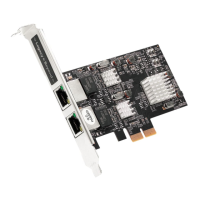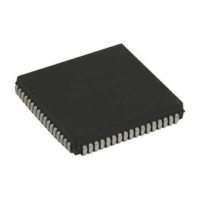Reference Thermal Solution
23 Thermal and Mechanical Design Guidelines
4.1.1 ATX Form Factor Operating Environment
The (G)MCH reference design thermal solution has been optimized to meet all three
boundary conditions for 65W/95W/130W processor TDPs. The highest processor TDP
provide a boundary condition for the (G)MCH heatsink with higher air inlet speed and
temperature (T
A
) while the lowest processor TDP provides lower air inlet speed and
temperature. The (G)MCH heatsink design is required to meet all of these boundary
conditions as specified in
Table 3.
Table 3. (G)MCH Heatsink Boundary Condition Summary in ATX Platforms
Processor TDP
(TDP)
Airflow Speed
(LFM)
Air Inlet Temperature
(T
A,
)
65 W 245
47.2 °C
95 W 292
50.0 °C
130 W 341
51.6 °C
In ATX platforms using the 130 W TDP processor, an airflow speed of 1.73 m/s
[341 lfm] is assumed to be approaching the heatsink at a 30° angle from the
processor thermal solution, see
Figure 8 and Figure 9 for more details. The local
ambient air temperature, T
A
, at the (G)MCH heatsink in an ATX platform is assumed to
be 51.6 °C for the (G)MCH. The airflow assumed above can be achieved by using a
processor heatsink providing omni directional airflow, such as a radial fin or “X”
pattern heatsink. Such a heatsink can deliver airflow to both the (G)MCH and other
areas like the voltage regulator, as shown in
Figure 10. In addition, (G)MCH board
placement should ensure that the (G)MCH heatsink is within the air exhaust area of
the processor heatsink.
Note that heatsink orientation alone does not guarantee that airflow speed
will be achieved. The system integrator should use analytical or experimental means
to determine whether a system design provides adequate airflow speed for a
particular (G)MCH heatsink.
The thermal designer must carefully select the location to measure airflow to get a
representative sampling. ATX platforms need to be designed for the worst-case
thermal environment, typically assumed to be 35 °C ambient temperature external to
the system measured at sea level.
